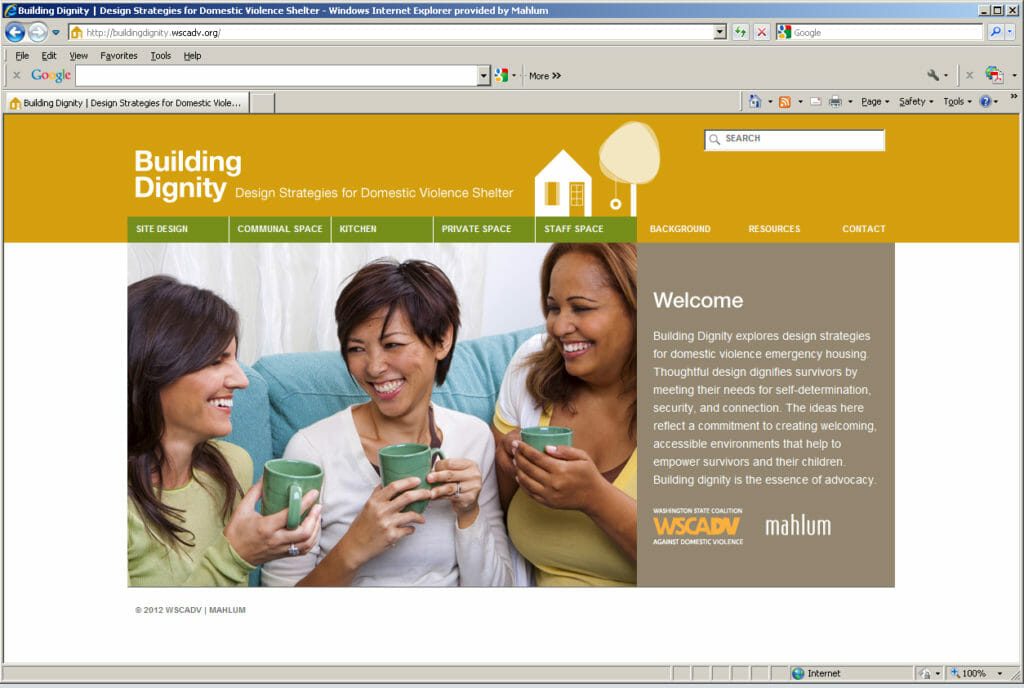 In our ongoing commitment to community, Mahlum continues advocacy for design of homeless shelters that not only provide safe shelter but enhance resident feelings of security and well-being. Beginning in 2011, Mahlum selected Washington State Coalition Against Domestic Violence (WSCADV) as the recipient of pro bono architectural services. WSCADV’s goal was not to create a building, rather to create design guidelines for shelters serving women seeking to break the cycle of violence in their lives and their children’s lives.
In our ongoing commitment to community, Mahlum continues advocacy for design of homeless shelters that not only provide safe shelter but enhance resident feelings of security and well-being. Beginning in 2011, Mahlum selected Washington State Coalition Against Domestic Violence (WSCADV) as the recipient of pro bono architectural services. WSCADV’s goal was not to create a building, rather to create design guidelines for shelters serving women seeking to break the cycle of violence in their lives and their children’s lives.
As part of the process, we engaged with diverse WSCADV stakeholders, listened and studied intently, and then endeavored to translate challenges and issues into a range of possible design strategies that span the continuum from redecorate to rethink. In particular, we:
- Reviewed and assisted in analyzing data from focus groups and interviews with domestic violence survivors (both women and children), shelter advocates and managers regarding experiences of a variety of shelter environments;
- Complemented focus groups with first-hand observation during several shelter visits;
- Facilitated “Think Tanks” that brought together people with a variety of perspectives and expertise to generate intensive conversation, critique progress, and brainstorm where projects might go.
Website: http://buildingdignity.wscadv.org/
More About the Website
The product of this year-long collaboration is an interactive, tool -– Building Dignity: Design Strategies for Domestic Violence Shelter – which assists advocates, shelter staff, fundraisers, and the design community to improve the quality of life for survivors and their families, within the state and throughout the country. Building Dignity is an opportunity to illustrate how our problem solving skills, as architects, can serve those who might not normally seek us out (even if it’s not a building that’s needed). We aspire to show, through the design and collaboration process, how domestic violence housing programs can shape the built environment to reflect and complement their mission and values. Thoughtful design can help empower parents, support children’s needs, and facilitate healing. It can help survivors rebuild a sense of dignity and allow staff to focus on providing survivor-centered advocacy.
